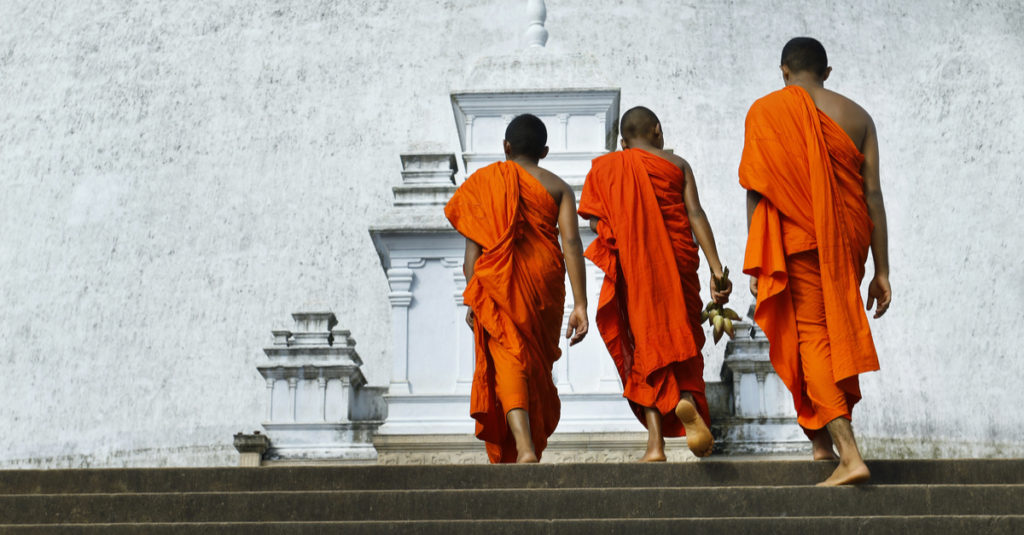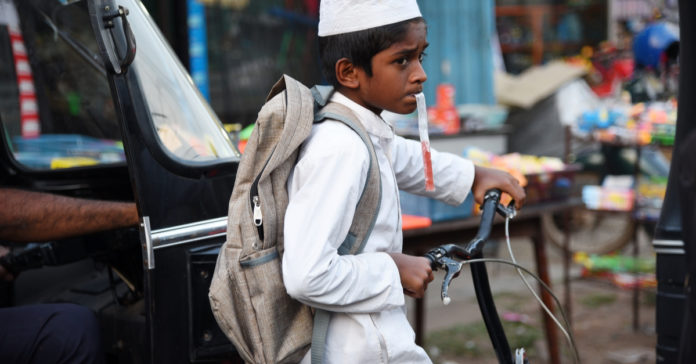Muslims in Sri Lanka have been consistently targeted for their religious beliefs and have faced discrimination, harassment and violence since 2013 from the Buddhist majority in the country, according to human rights group Amnesty International.
Amnesty said in a recent report that hostilities towards Muslims have increased at an alarming rate since the Easter bomb attacks in 2019 with tacit approval from the authorities.
The report says: “This discrimination has evolved from a rising series of mob attacks committed with impunity, into government policies explicitly discriminating against Muslims, including the forced cremation of Muslim Covid-19 victims and current proposals to ban both the Niqab (face veil) and madrasas (religious schools).”
Kyle Ward, Amnesty International’s Deputy Secretary General, said: “While anti-Muslim sentiment in Sri Lanka is nothing new, the situation has regressed sharply in recent years. Incidents of violence against Muslims, committed with the tacit approval of the authorities, have occurred with alarming frequency. This has been accompanied by the adoption by the current government of rhetoric and policies that have been openly hostile to Muslims…
“The Sri Lankan authorities must break this alarming trend and uphold their duty to protect Muslims from further attacks, hold perpetrators accountable and end the use of government policies to target, harass and discriminate against the Muslim community.”
The report says that incidents of violence towards Muslims have risen in frequency and intensity and perpetrators have enjoyed full impunity for their actions.
The Sinhala Buddhist nationalist movement – the group behind the majority of anti-Muslim violence – aims to uphold the political, economic, and religious supremacy of Sinhalese Buddhists, and believes that Muslims are alien to the country and that their perceived disproportionate economic and demographic success poses a threat to the Sinhala Buddhist people.
Subscribe to our newsletter and stay updated on the latest news and updates from around the Muslim world!

“This escalating hostility began with the anti-halal campaign… when Sinhala Buddhist nationalist groups successfully lobbied to end the halal certification of food, which demarks food permissible for consumption by Muslims, in accordance with Islamic scripture and customs. The campaign gave rise to a number of attacks on mosques and Muslim businesses, with the lack of accountability for those responsible acting as a signal to others that acts of violence against Muslims could be committed with impunity,” the report says.
In 2015 the new Government promised justice and accountability for ethnic and religious minorities. However, shortly after the elections anti-Muslim mob violence flared up and has continued. The report details how during incidents in the southern coastal town of Ginthota in 2017 and attacks on Muslims in Digana and Ampara in 2018 perpetrators escaped accountability and the police and armed forces did not do enough to prevent the violence.
Similarly, a spike in violence against Muslims was seen after Easter bombings in 2019. The report says: “Following these attacks, on 13 May 2019, Muslims in several towns in the North-Western Province of Sri Lanka came under attack during Ramadan, one of the holiest months in the Muslim calendar. Mosques across the country were also attacked and a spate of ‘hate speech’ posts and anti-Muslim vitriol was seen on social media.”
The report highlights that the current government, led by President Gotabaya Rajapaksa, has continued to target and scapegoat the Muslim population to distract from political and economic issues since taking office.
The report says that: “The mandatory cremation policy on the disposal of the bodies of Covid-19 victims, was implemented despite cremation being expressly forbidden in Islam, and a lack of scientific evidence to substantiate the claims that burying victims would further the spread of the disease.’
“From anti-terrorism laws and forced cremations to niqabs and madrasas, the Sri Lankan government has pursued a blatantly discriminatory policy agenda against Muslims. We urge the authorities to reconsider the proposals currently under consideration, and for the international community to monitor and take measures to ensure the freedom and protection of minority communities in Sri Lanka,” said Kyle Ward.
The report documents several cases in which these laws have been abused to target individuals, including Hejaaz Hizbullah, a lawyer and activist who has been detained for more than 15 months, and Ahnaf Jazeem, a poet and teacher, who was arrested on May 16, 2020 following unsubstantiated claims about his Tamil language poetry.
Amnesty International contacted the Sri Lankan authorities but did not receive a response.


















